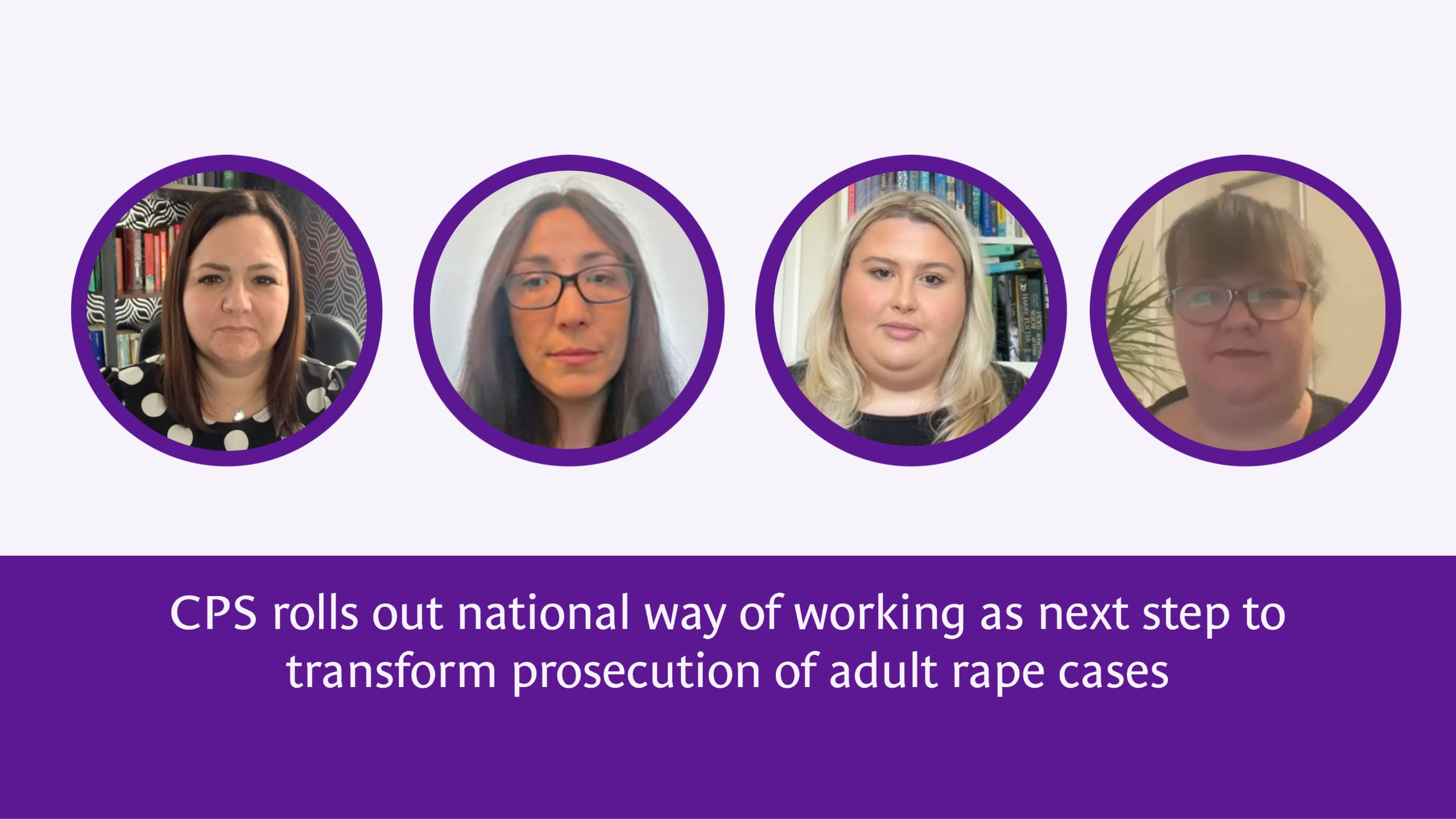
Over the past year we’ve changed the way we approach rape prosecutions.
We want to drive up the number of cases going to court.
We need to improve the experience of victims.
We know we have a long way to go to restore public confidence.
Here are just some of the things we are doing:
Listening to those who know victims best
We are working closely with Independent Sexual Violence Advisors (ISVAs) to improve our communications with victims.
ISVAs work closely with victims of rape or sexual offences.
They are providing a direct line of contact between prosecutors and victims.
They help us ensure victims are updated about their case in the most appropriate way that’s specifically tailored to their individual needs.
There's no one size fits all solution and every victim is different.
ISVAs also have a role to provide scrutiny of CPS and police decision-making.
They can see what we're doing and challenge us when they think we are getting it wrong.
Lauren Costello - Deputy Chief Crown Prosecutor, CPS North East
Giving victims one CPS contact to speak to
We are bringing in dedicated CPS victim liaison officers in every rape or serious sexual offence case.
They'll be a single point of contact for anyone who is waiting for a court hearing.
They will reduce the potential for delayed communication.
We'll check in, see how victims are doing, let them know what’s happening with the case, answer their questions.
Victims should know that we are here for them, they are important, and their feelings matter.
Jasmine - Casework Administration Manager, CPS West Midlands
Working closer and earlier than ever with police
The early days after a rape complaint can be vital.
We are offering to meet police investigators within 21 days of a report to agree how we will approach the case.
We can make early decisions to ensure any requests for personal data are strictly necessary.
We can address any harmful assumptions or misconceptions about rape and how victims or perpetrators behave.
We can work with the police to build as strong a prosecution case as possible.
Sally - District Crown Prosecutor, CPS South East
Keeping the focus on investigating suspect, not the victim
We will look together with police at what the offender was doing, not what the victim was doing, in the run up to the offence.
It is not about what the victim had done, how much she’d had to drink or who she’d been speaking to.
It is not about their memory, often a perfectly natural response to the trauma they have suffered, or the position they were put in by their attacker.
We want to know what the offender’s behaviour and motives were.
We know rapists target and have strategies for their offending.
They often seek women in vulnerable positions.
When we get to trial we will have the evidence we need to show a jury the full context of the crime.
Lisa - Senior Crown Prosecutor, CPS Wessex
Case study: How do we make sure we keep the focus on a suspect's behaviour, not the victim's credibility?
A heavily intoxicated Cardiff woman woke up naked in a room next to another student not knowing what had happened or how she got there and she asked for his social media details before leaving.
The CPS and police agreed early on in a meeting held within 21 days of the police report to focus on the actions of the suspect, rather than on any perceived early weaknesses in her recollection.
CCTV footage swiftly retrieved before it could be deleted subsequently revealed the suspect had been lurking in the same nightclub earlier in the evening, lured her away from her friends, and carried her semi-unconscious back to his room, dropping her twice.
He could have had no reason to believe she was in any position to consent to sex.
He pleaded guilty on the day of trial and was sentenced to six years and nine months in a young offenders’ institution.
Cardiff University student jailed for rape | The Crown Prosecution Service (cps.gov.uk)
The changes we are putting in place are having an impact.
Over the past year, we have seen the volume of adult rape-flagged cases charged increase by 40%.
We're on track to significantly increase the number of cases going to court year on year.
But we know we still have a long way to go to drive lasting change across the CPS and criminal justice system, and win back public confidence.
We will continue to listen carefully to partners and victims as we go.